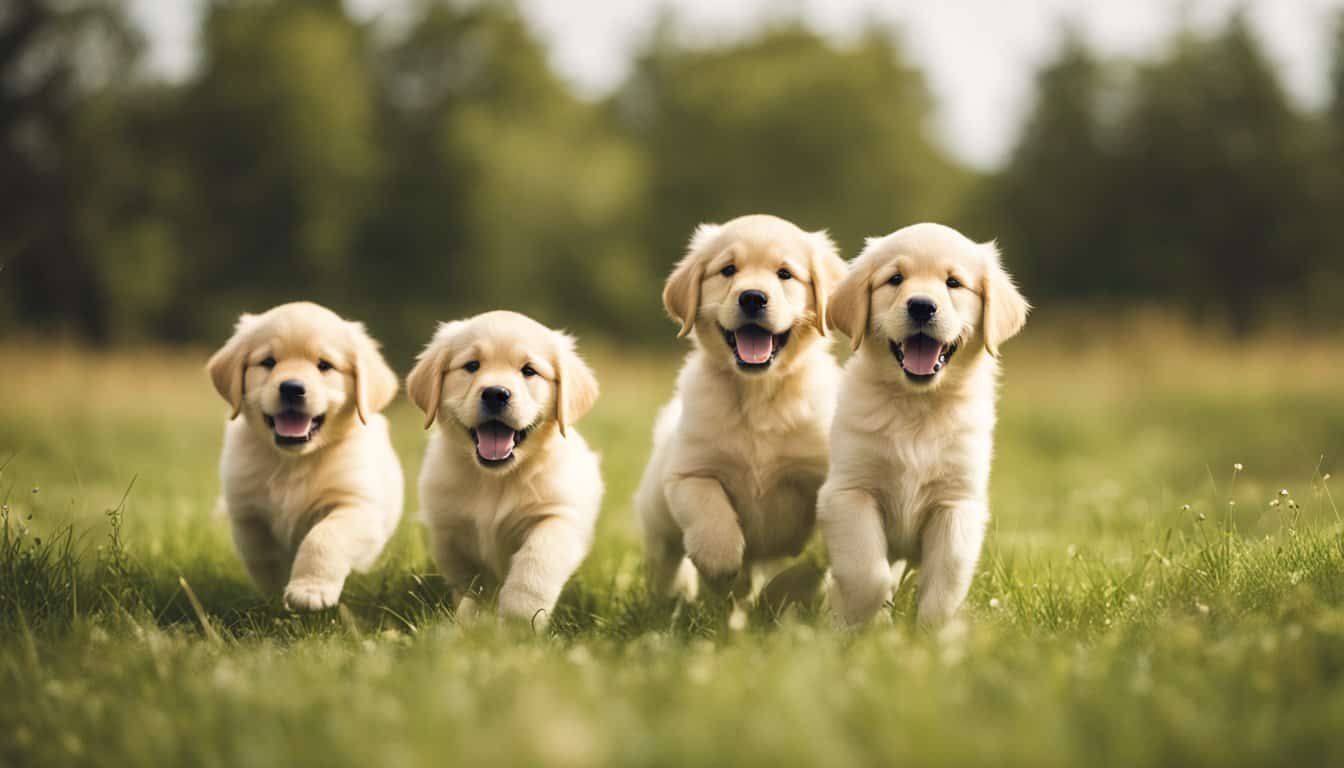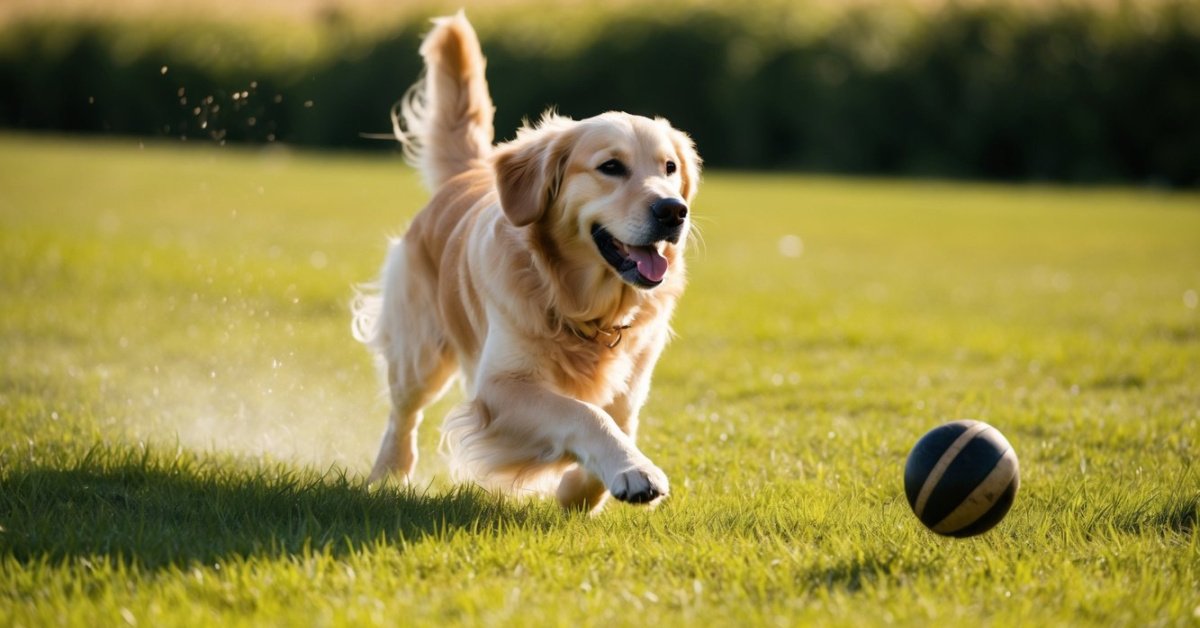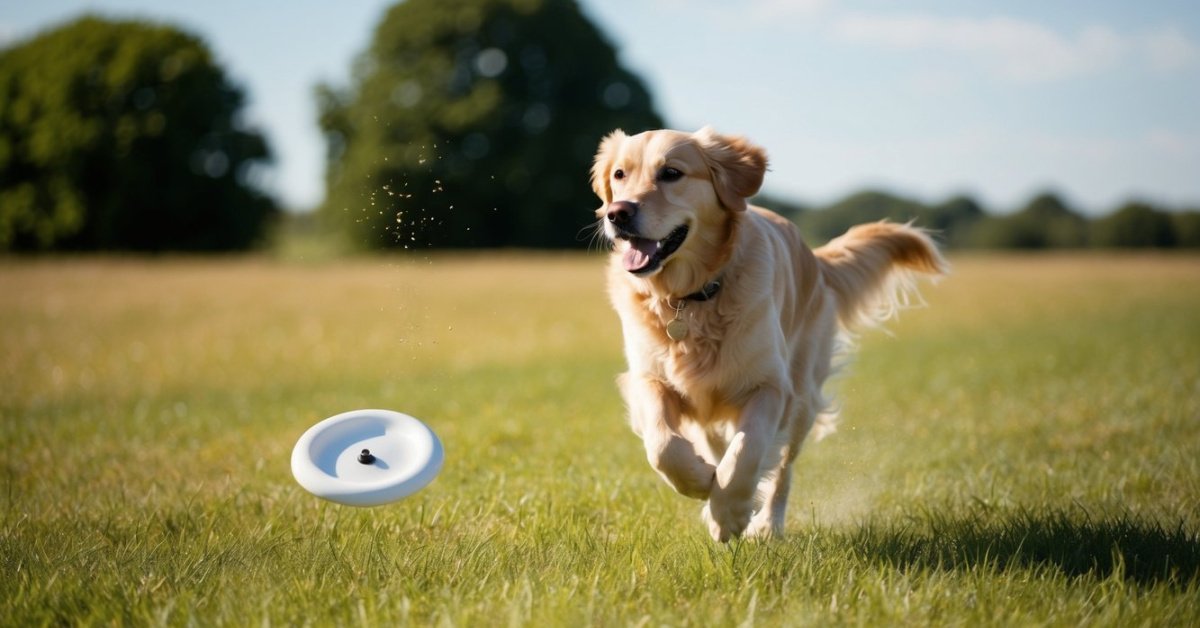Are you a proud owner of a golden retriever who is about to give birth? If so, you may be wondering how long the labor process will last. Understanding the duration of labor can help you prepare for the arrival of the adorable puppies. In this article, we will explore the topic of how long golden retriever labor typically lasts, providing you with valuable insights and information. So, let’s dive in and discover what you can expect during this exciting time for both you and your furry friend.
Welcoming a litter of golden retriever puppies into the world is an incredible experience. However, it’s natural to have questions and concerns about the labor process. One of the most common queries is how long the labor will last. Every dog is unique, and the duration of labor can vary. In this article, we will discuss the average length of golden retriever labor, giving you a better understanding of what to expect. So, if you’re curious about this topic, keep reading to find out more.
Preparing for your golden retriever’s labor requires knowledge and understanding of the process. If you’re a first-time owner or simply curious about the duration of labor, you’ve come to the right place. In this article, we will delve into the topic of how long golden retriever labor typically lasts. By the end, you’ll have a clearer picture of what to anticipate during this special time, ensuring you can provide the necessary care and support to your beloved pet. So, let’s get started and explore the fascinating world of golden retriever labor.
What is Labor in Golden Retrievers?
As a dog lover and owner of both a golden retriever and a Goldendoodle, I understand that preparing for your furry friend’s labor can be an exciting but also nerve-wracking experience. If you’re wondering about the duration of labor, you’re not alone. Let’s dive into what labor looks like for golden retrievers.
1. Pre-Labor Signs
Before labor begins, there are a few signs to look out for. Your golden retriever may become more restless, start nesting behaviors, or even lose their appetite. Keep an eye out for a drop in their body temperature below 100°F (37.8°C), as this can signal that labor is imminent in the next 24 hours.
2. Stages of Labor
The labor process typically consists of three stages: early labor, active labor, and delivery. In early labor, your golden retriever may appear anxious, pant or exhibit pacing behavior. This stage can last anywhere from 6 to 12 hours.
During active labor, your dog’s contractions will become more frequent and intense. This is when the puppies will be born. This stage can take from 2 to 6 hours. Each puppy is usually delivered within 30 minutes to an hour after active labor begins.
3. Average Duration
While the duration of labor can vary, the average length for golden retrievers is around 5 to 6 hours. However, it’s important to remember that each dog is different, and the timing can be influenced by various factors such as the size of the litter and the mother’s overall health.
4. The Importance of Support
During labor, it’s essential to provide a calm and comfortable environment for your golden retriever. Make sure she has a quiet space to give birth and be prepared to assist if necessary. However, it’s important to avoid unnecessary interference unless there are clear signs of distress or complications.
Signs of Labor in Golden Retrievers
As a dog lover and owner of a golden retriever and a Goldendoodle, you understand the excitement and anticipation of welcoming a new litter of puppies into the world. Golden retrievers are known to be wonderful mothers, and it’s essential to be prepared and knowledgeable about the signs of labor. Here are some key indicators to look out for:
Nesting Behavior
One of the first signs that your golden retriever is preparing for labor is nesting behavior. She may start to gather blankets, towels, or other soft materials to create a comfortable and secure space for her puppies. You might observe her scratching and digging at the ground or rearranging her bedding. This instinctive behavior is a clear indication that labor is approaching.
Temperature Drop
Another important sign to monitor is your dog’s body temperature. Normally, a golden retriever’s temperature ranges between 101 and 102.5 degrees Fahrenheit. However, about 24 hours before labor begins, her body temperature might drop to around 100 to 99 degrees Fahrenheit. This temperature drop is a reliable indicator that labor is imminent, and you should be prepared to assist if needed.
Restlessness and Discomfort
As labor approaches, you may notice your golden retriever becoming restless and exhibiting signs of discomfort. She might pace, pant excessively, or lick herself excessively. These behaviors are completely normal as she prepares to give birth. Ensure that she has access to a quiet and calm environment where she feels safe and secure.
Contractions and Active Labor
During the early stages of labor, you may observe your dog having mild contractions. These contractions will gradually become stronger and closer together. As active labor begins, you’ll notice more forceful contractions and possibly see the placental sac being expelled. It’s crucial to monitor the progress of labor and consult with a veterinarian if you have any concerns or if the labor appears to be lasting longer than expected.

« Unlock the Secrets of Easy Golden Retriever Crate Training and Say Goodbye to Training Struggles
Discover the Revealing Signs: Is Your Golden Retriever in Heat? Uncover the Surprising Secrets Now »
Remember, every golden retriever’s labor experience is unique, and the duration can vary. By recognizing these signs, you can provide the support and care your beloved pet needs during this special time. Stay by her side, offer comfort, and be prepared to assist when necessary.
How Long Does Golden Retriever Labor Last on Average?
As a dog lover and owner of a golden retriever and a Goldendoodle, you may find yourself curious about the length of labor for your furry friends. Having worked at animal shelters and veterinary offices, I understand the importance of being well-informed about your dog’s labor and delivery process. Let’s dive into the average duration of labor for golden retrievers.
On average, golden retriever labor can last anywhere from 6 to 12 hours. Keep in mind that this is just an estimate, and individual variations can occur. Factors such as the dog’s health, previous pregnancies, and size can affect the length of labor.
During the early stage of labor, you may notice nesting behaviors, restlessness, and a drop in body temperature. This is a good sign that labor is approaching. Once active labor begins, your dog may experience contractions, which can be seen as abdominal tightening. It’s essential to provide a calm and comfortable environment for your dog during this time.
As your golden retriever progresses through labor, you may notice the birth of each puppy occurring roughly 30 minutes to an hour after the previous one. The entire process of giving birth to all the puppies can take several hours. Remember to monitor your dog closely and be prepared to lend a helping hand if needed, especially if it’s her first time giving birth.
If you’re a proud owner of a Goldendoodle, it’s important to note that the labor duration can vary for this mixed breed as well. Goldendoodles are a cross between golden retrievers and poodles, and their labor may take a slightly longer or shorter time than purebred golden retrievers. It’s always best to consult with your veterinarian to understand the specific needs of your unique dog.
Understanding the average length of golden retriever labor gives you valuable insights as an owner. By staying attentive and being there to support your dog during this incredible experience, you can help ensure a safe and smooth delivery for her and her puppies. Keep a watchful eye and cherish this special moment with your furry friend.
Factors That Can Affect the Duration of Golden Retriever Labor
When it comes to the miracle of birth, every dog breed is unique, including our beloved golden retrievers and Goldendoodles. While the average duration of labor for golden retrievers is around 6-12 hours, there are several factors that can influence how long the process lasts. Let’s take a closer look at these factors:
1. Size of the Dog: Just like humans, the size of the mother dog can play a role in labor duration. Larger golden retrievers usually have longer labor periods compared to smaller ones. A larger litter size can also extend the labor process.
2. Previous Breeding Experience: A golden retriever who has previously given birth might have shorter labor times for subsequent litters. This is because their bodies have experienced the birthing process before, so they may be more efficient and experienced.

3. Health and Fitness: Your furry friend’s overall health and fitness level can have an impact on labor duration. Well-exercised and healthy golden retrievers tend to have quicker labor than those who are less active or have underlying health conditions.
4. Genetics: Genetics can also come into play when it comes to labor duration. If your golden retriever or Goldendoodle comes from a bloodline that generally has longer labor periods, it’s likely that your dog will follow suit.
5. Stress Levels: Stress and anxiety can slow down the labor process for any dog breed, including golden retrievers. Ensuring a calm and comfortable birthing environment for your furry friend can help facilitate a smoother labor experience.
6. Interventions during Labor: Depending on the circumstances, there may be instances where intervention is necessary during labor. These can include administration of oxytocin to stimulate contractions or interventions such as a cesarean section. These interventions can impact the overall duration of labor.
It’s important to note that the duration of labor can vary from dog to dog, even within the same breed. While these factors may influence the length of labor for your golden retriever or Goldendoodle, it’s always best to consult with a veterinarian who can provide personalized guidance and support throughout the birthing process. Remember, every dog is different, and what matters most is the health and welfare of your furry companion.

What to Expect During Golden Retriever Labor
If you’re expecting a litter of adorable golden retriever or Goldendoodle puppies, it’s important to understand what happens during labor. As a dog lover and owner of a golden retriever and a Goldendoodle, plus having experience working at animal shelters and veterinary offices, I can offer you some insight into what you can expect during this exciting time.
Pre-Labor Signs
A few days before labor begins, you may notice some signs that your golden retriever or Goldendoodle is getting ready to give birth. Keep an eye out for:
- Nesting behavior: Your dog may start to create a comfortable and safe space for her puppies by digging or rearranging bedding.
- Dropping temperature: Take your dog’s rectal temperature twice a day. About 24 hours before labor begins, her temperature may drop slightly.
- Restlessness and pacing: As labor approaches, you may notice your dog becoming more restless, pacing, and unable to settle comfortably.
Stages of Labor
Golden retriever and Goldendoodle labor generally consists of three stages:
- Stage One: The first stage can last up to 24 hours. During this stage, your dog may experience mild contractions, restlessness, and panting. She may also lose her appetite and vomit. This stage is when the cervix dilates to prepare for delivery.
- Stage Two: This is the active stage of labor when you will start seeing the birth of puppies. Strong, regular contractions will push each puppy through the birth canal. The interval between puppy deliveries can vary from a few minutes to up to an hour. Your dog may vocalize and strain during contractions.
- Stage Three: After each puppy is born, your dog will enter the third stage of labor, which involves the delivery of the placenta. This usually happens within 15-30 minutes after each puppy is born. It is essential to count the number of placentas to ensure none are retained.
Your Role During Labor
During labor, it’s important to create a calm and comfortable environment for your dog. Provide a quiet space, keep distractions to a minimum, and offer plenty of fresh water and nutritious food. Although dogs generally handle the birthing process instinctively, it’s crucial to monitor their progress and ensure that both the mother and puppies are safe and healthy.
Remember, every dog and every labor experience is unique. If

How to Support Your Golden Retriever During Labor
As a dog lover and owner of a golden retriever and a Goldendoodle, you undoubtedly want to provide the best care for your furry friend during every stage of their life. When it comes to supporting your golden retriever during labor, there are several things you can do to ensure a safe and comfortable experience for both the mother and her puppies.
Create a Calm and Comfortable Environment
During labor, it’s important to create a calm and comfortable environment for your golden retriever. Find a quiet and secluded area where she can feel safe and secure. Provide her with a cozy and clean whelping box, lined with soft bedding. This will give her a designated space for labor and delivery.
Stay by Her Side
Offering your presence and support throughout the labor process can help your golden retriever feel reassured and loved. Stay by her side and offer gentle encouragement. Stroke her gently and speak in a soothing voice to help her relax.

Monitor Progress
While it’s important to give your golden retriever space during labor, it’s also crucial to monitor her progress. Keep an eye on the timing and frequency of contractions. Take note of any signs of distress or complications that may require veterinary attention.
Provide Nutritious and Easily Digestible Food
During labor, your golden retriever will require extra energy. Offer her small, frequent meals of easily digestible food to keep her strength up. Fresh water should also be readily available to keep her hydrated throughout the process.
Consult with Your Veterinarian

Each labor and delivery is unique, and it’s always best to consult with your veterinarian for personalized guidance and support. They can give you specific recommendations based on your dog’s health and individual needs. Your vet can provide information on potential signs of complications, such as prolonged labor or difficulties delivering the puppies, so you can act promptly if necessary.
By following these tips, you can provide the support and care your golden retriever needs during labor. Remember that each dog is unique and may require different levels of assistance. Trust your instincts and consult with professionals if needed to ensure a smooth and successful birthing experience for your golden retriever and her puppies.
Conclusion
Supporting your golden retriever during labor is crucial for a smooth and successful delivery. By creating a calm and comfortable environment, staying by your dog’s side, monitoring her progress, providing nutritious food, and consulting with a veterinarian, you can ensure the best possible experience for both your dog and her puppies. Remember, each labor is unique, so trust your instincts and seek professional help if needed. With your love and care, your golden retriever will have a safe and positive labor experience.

















